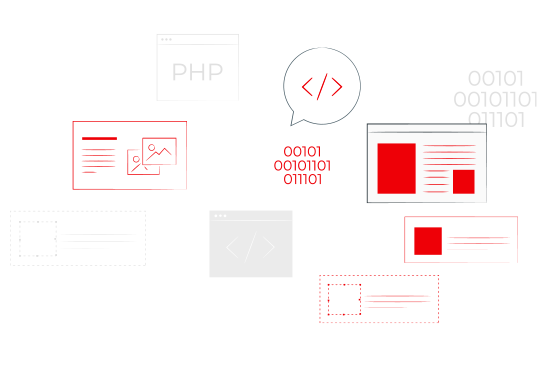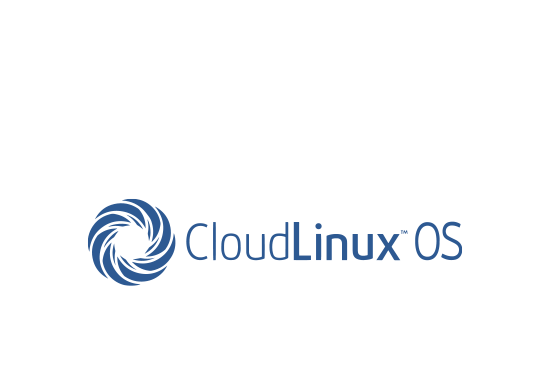Linux hosting is a type of web hosting service. This service is a platform where all the resources required for a website to be accessible on the internet are stored and managed on a server.
Linux hosting runs on the open-source
Linux operating system, which is compatible with many different web applications and website design tools.
Linux hosting offers some advantages over other web hosting types like Windows hosting. The Linux operating system is a reliable,
fast and secure platform. Additionally,
Linux hosting services are often more affordable and offer a wide range of features. As
the cheapest hosting provider, we have several Linux hosting packages that will suit your needs. Examples of features include database support, FTP access, email services, and support for various scripting languages.
Linux hosting offers many different plans and options to meet the needs of any website owner. Therefore, it is usually easy to find a suitable Linux hosting plan for a website owner.
What Does Linux Hosting Do?
Linux hosting is also a reliable, fast, and secure platform. As an open-source operating system,
Linux is continuously updated with security updates and regular patches. Therefore,
Linux hosting services ensure smooth operation of websites and provide a high-quality experience for visitors. Linux hosting offers all the essential features required for hosting a website. These include the following:
•
Storage: Linux hosting provides the disk space needed to store all the files and data of a website. This allows storing website content, images, videos, and other multimedia elements.
•
Database Support: Allows the website to manage content using a database. Many database management systems, such as MySQL and PostgreSQL, are supported by Linux hosting services.
•
FTP Access: Allows website files to be uploaded or downloaded using FTP (File Transfer Protocol). This allows website owners to upload and edit files.
•
Email Services: Allows website owners to create custom email addresses for their domain. This enables website owners to communicate with customers or users and manage contact information.
•
Script Language Support: Linux hosting supports scripting languages like PHP, Perl, and Python. This allows website owners to create dynamic content, forms, and perform database operations.
Where is Linux Hosting Used?
Linux hosting is used in most websites hosted on the internet. Linux hosting handles all the website hosting processes and is used in the following areas:
•
Personal websites: Commonly used for hosting personal websites. These websites typically offer content such as blogs, photo galleries, or portfolios.
•
Business websites: Also used for hosting business websites. These websites promote the business's products or services, provide customer support, and offer other necessary features for the business's web presence.
•
E-commerce websites: Used for hosting e-commerce websites. These websites offer a platform for customers to purchase products or services.
•
Application hosting: Linux hosting is also used to host web applications. These websites host web applications that provide a unique experience for users.
•
Media hosting: Also used to host media files. This is ideal for hosting large files such as music or videos.
Linux hosting is also commonly used by web developers because it is compatible with many website design tools and application development tools.
What Web Panel is Used in Linux Hosting Packages?
Linux hosting packages typically come with a web control panel. The web control panel allows website owners to manage their servers and control their websites. The most popular applications are:
•
cPanel: cPanel is the most popular control panel for Linux-based web hosting servers. It offers a user-friendly interface for managing websites, email accounts, databases, files, and other resources.
•
Plesk: Plesk is a web control panel for both Linux and Windows servers. It allows website owners to manage their servers, publish websites, and host applications.
•
DirectAdmin: A control panel for Linux-based web servers. DirectAdmin offers a user-friendly interface for managing websites, email accounts, databases, and other resources.
•
ISPConfig: ISPConfig is an open-source web control panel for Linux and BSD servers. ISPConfig is used to manage servers, publish websites, and manage customer accounts.
Why Are Linux Hosting Packages Affordable?
Linux hosting packages are generally affordable because Linux is an open-source operating system and is free to use. Therefore, running a Linux-based web server is less costly compared to licensing costs for other operating systems.
Additionally, because Linux is the preferred choice for web servers, many web hosting providers offer it. This intense competition ensures that providers keep their prices low.
As a result, Linux hosting packages are affordable because the operating system is free, and the competition among providers helps keep prices competitive.
Scripts Used in Linux Hosting Plans
Linux hosting packages typically allow the use of various web scripts. Some of these scripts include:
•
WordPress: WordPress, a popular content management system, is commonly used in Linux hosting packages.
•
Joomla: Joomla is a CMS (content management system) useful for larger websites.
•
Drupal: Drupal is a CMS used mostly by more technically skilled users.
•
Magento: Magento is an e-commerce platform designed specifically for e-commerce websites.
•
PrestaShop: PrestaShop is an open-source e-commerce platform used for e-commerce websites.
•
phpBB: phpBB is an open-source forum script.
•
MediaWiki: MediaWiki is the script behind many popular wiki sites, such as Wikipedia.
In addition to these scripts, many other web applications and frameworks can be used in Linux hosting packages. These include popular web technologies such as Laravel, CodeIgniter, Django, Ruby on Rails, Node.js, and AngularJS.
What to Consider When Buying Linux Hosting
Some important things to consider when purchasing Linux hosting are:
•
Determine your needs: First, you should determine what kind of hosting service you need for your website. For example, you can determine your needs by considering factors such as traffic volume, disk space, and database usage.
•
Check security measures: Be aware of the security protocols provided by your Linux hosting provider. Do they offer SSL certificates, firewalls, and anti-virus software?
•
Evaluate performance: The speed of your website’s loading is important for user experience. Get information about the speed and performance of your hosting provider’s servers.
•
Check technical support services: It is important that your service provider offers 24/7 technical support. Get information about the quality of technical support services and response times.
•
Compare prices: Compare the prices of different service providers and choose the one that fits your budget. However, do not make your decision based only on price, consider the other factors mentioned above as well.
•
Check features: Review the features offered by your service provider. Having features like databases, email accounts, and FTP access can enhance your site's performance.
•
Read user reviews: Check user reviews about your service provider to get an idea of other users' experiences.
Is Linux Hosting Suitable for WordPress?
Linux is a suitable operating system for
WordPress. In fact, for open-source software like WordPress,
Linux is typically the preferred operating system. Therefore, you can use a Linux server to run your WordPress site.
Linux is a free and open-source operating system with many different distributions, such as Ubuntu, Debian, CentOS, Fedora, and OpenSUSE. The components required by WordPress, such as Apache, MySQL, and PHP, can be easily installed on Linux.
Additionally, Linux is a secure, fast, and stable operating system. Therefore, it can help your WordPress site run more securely and faster.
 EN
EN 


























